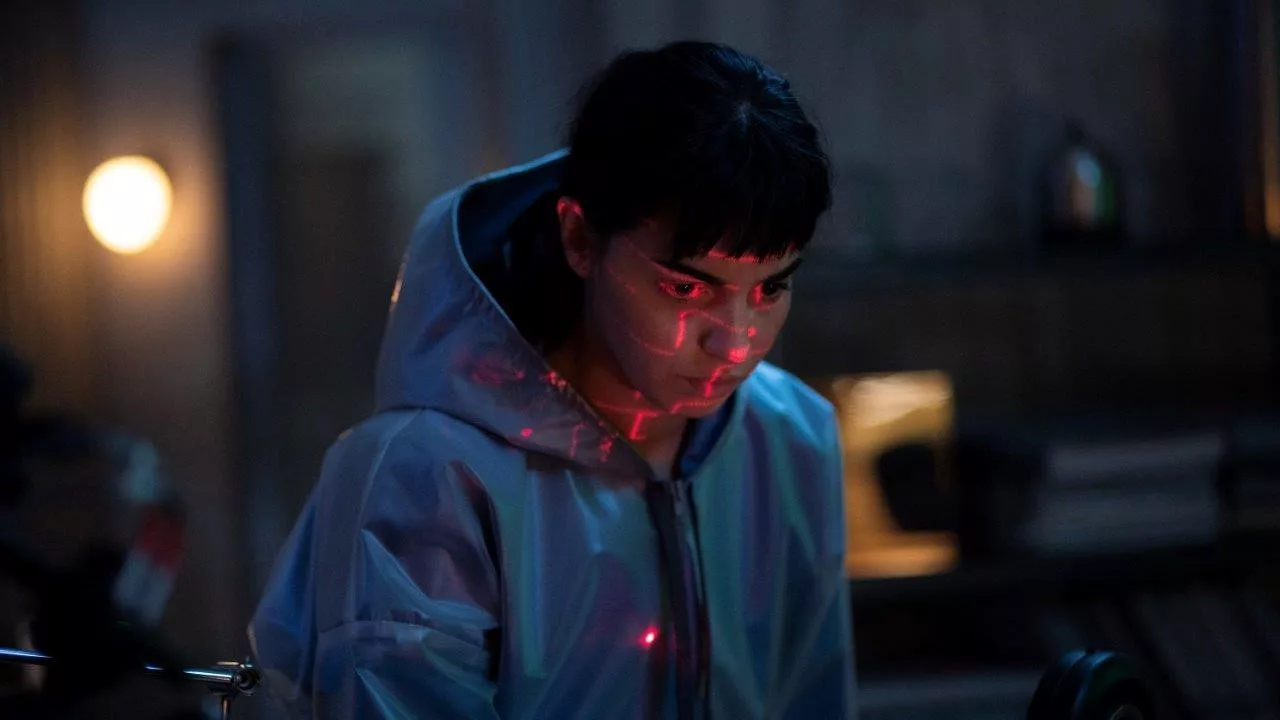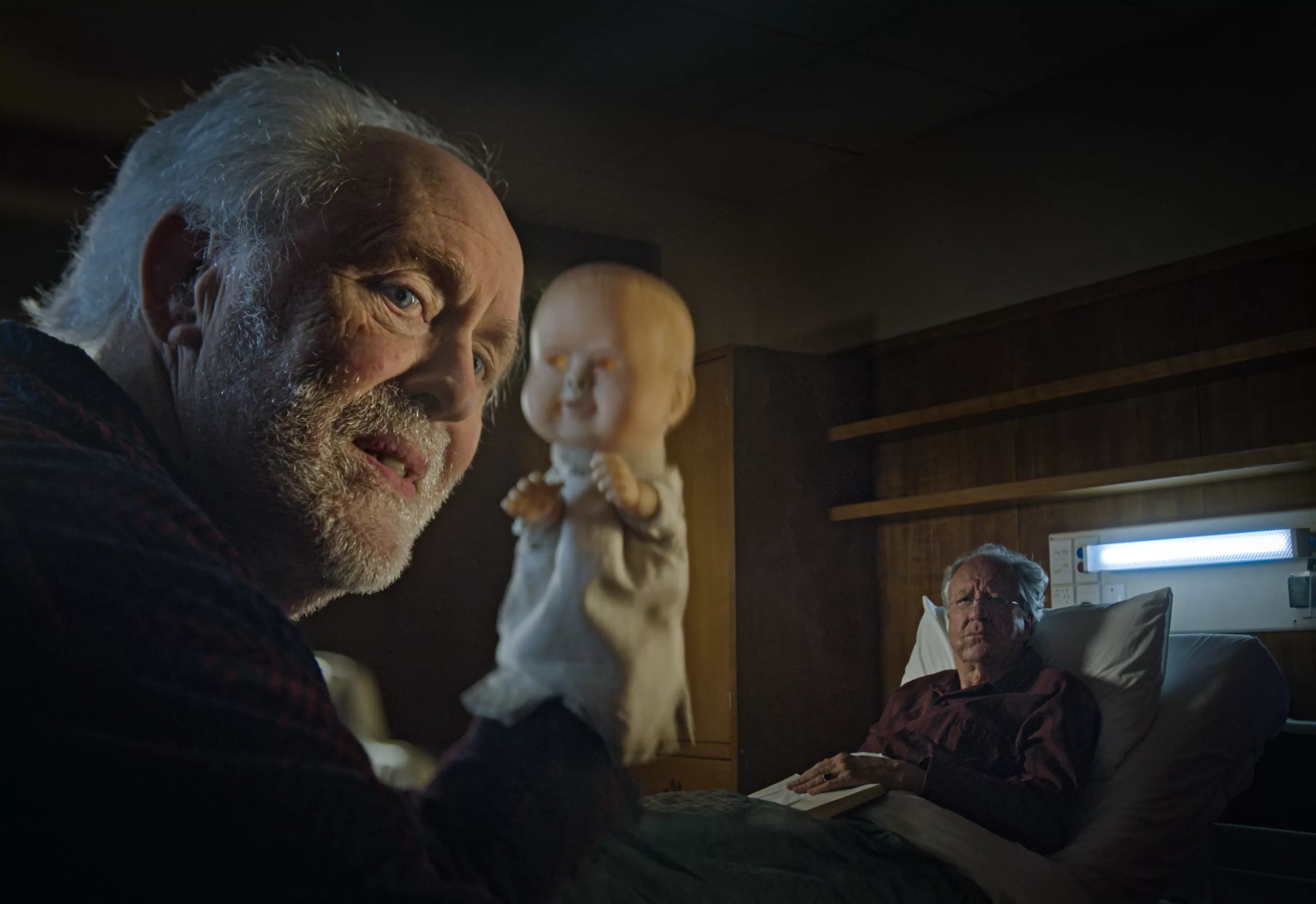
At my first Fantastic Fest, I’ve been struck by the quality of the programming. Where else can you see the Palme d’Or winner (“Anora,” which I finally caught up with and think might be the best film of the year), a future animated hit like “The Wild Robot,” and dozens of indie genre flicks from around the world? No shade to the Midnight programmers at the fests I regularly attend, but they could take a note or two from the wide net that FF casts for its schedule, one that realizes that the limitations of genre are vast. Just look at this dispatch of three films from around the world: a Ukrainian story of isolation, a French tale of revolution, and an Australian experiment in brutality.
It’s a really close race between the first pair, but my fave of the three is Pavlo Ostrikov’s debut “U Are the Universe,” one of many films this year that could be read as a Covid allegory, but also a movie that feels almost impossible when one considers the conditions under which it was made. Apparently, Ostrikov was about halfway through production when Russia began its war with his country, leading to unimaginable difficulty in getting it done. The fact that his film is about a universe-shattering event, one in which everything changes, gains emotional weight given how many Ukrainians will never be the same.
“U Are the Universe” imagines a future in which a solo space traveler named Andriy (Volodymyr Kravchuk) is millions of kilometers from his home, doing blue collar work near Jupiter, his only ally a joke-telling robot named Maxim. At the film’s onset, he has screwed up his job, told he’ll probably have to find a new one when he gets home, but that quickly becomes a secondary concern when Earth literally explodes. Left alone in the universe, he basically plans to live out his days floating through space with his records, boardgames, and toys. Until someone responds to one of his signals.
“U Are the Universe” is about unexpected connections, and how we will do the impossible to take our last chance to hold onto our humanity. Kravchuk basically gives a one-man show, and he’s fantastic. The film gets a little repetitive, but it’s also strikingly well-made. Again, given the conditions under which it was produced along with the likely low budget, it looks phenomenal. We believe Andriy is floating through space looking for meaning. Aren’t we all?

Aude Léa Rapin’s “Planet B” is about a very different kind of isolation—again, Covid feels like it’s everywhere this year—in a sci-fi vision of a future in which imprisonment has gained a terrifying new skill set. Julia (Adèle Exarchopoulos) is a revolutionary in a brutal future, someone who gets caught in the film’s prologue and thrown into what is basically a virtual prison. In the real world, she’s trapped in some military base with a headset that places her in what looks like a gorgeous Mediterranean home with some of her activist allies. They are basically mentally tortured here, given nightmares in an effort to get them to talk about the location and identities of fellow activists. It feel like a slightly underdeveloped commentary on surveillance, a near future in which we don’t really have to be in a virtual prison for a government body to monitor and control our every move.
Julia gets a co-lead in the phenomenal Souheila Yacoub, who plays an Iraqi migrant trying to escape her violent country to flee to the peaceful shores of Canada. To do so, she steals a headset from her job, ending up in Planet B with Julia. However, she can come and go. Can she save Julia without putting herself in jeopardy?
Rapin was a photographer and producer of documentaries about the war in the Balkans before becoming a filmmaker, and her time in places of actual conflict clearly influenced the dense thematic exploration here. There are some underdeveloped themes and the film could lose 10-15 minutes, but it’s still a success, a film that finds a new way to unpack timeless themes of freedom and control.

Finally, there’s the FF opening night film “The Rule of Jenny Pen,” a showcase for one of my favorite things in movie history: Evil John Lithgow. The phenomenal actor has underrated range, and I’ve always loved when he goes dark in projects like “Raising Cain” or his Emmy-winning work on “Dexter.” He co-stars here with Geoffrey Rush in a bleak tale of what is basically elder abuse, a tough sell for two hours, and one that doesn’t vary nearly enough in tone. James Ashcroft’s last film, the ultra-violent “Coming Home in the Dark,” had a similar issue in that both movies start to feel cruel in their unceasing brutality, ultimately monotonous in their unwillingness to find another register or take their story to another place. Through it all, Lithgow and Rush are doing their best, but “Jenny Pen” is one of my more disappointing FF experiences, a movie that only made me want to escape it.
Rush plays a magistrate who has a stroke, sending him to a public care facility that apparently has no nighttime employees. I say that because Lithgow’s fellow patient, who carries a doll named Jenny Pen around on his arm, has the run of the place at night, physically and mentally torturing whoever strikes his fancy. He targets Rush, sending that this proud man might be a tough one to break, going to further and further extremes to do so. “The Rule of Jenny Pen” becomes a battle of wills between a man who has been struck down by illness and a true sociopath, someone who preys on the weaknesses of the frail.
And I do mean frail. One of the issues with “Jenny Pen” is it feels like Ashcroft thinks very little of the elderly in that almost everyone at the facility but a handful of major players is incapable of not just fighting back but even being a witness to the violence. It’s a deeply exaggerated, unbelievable world of catatonic old people, laughing maniacally or staring off into space as Jenny Pen does her thing. And Lithgow’s maniac relies heavily on no one around him being able to snitch or for there to be surveillance cameras anywhere in sight, even though an exterior shot shows there to be some—I guess they’re off.
This is nitpicking when Lithgow is doing his thing well, which might happen just enough for some viewers, but the fact that I was thinking about the practicalities of Jenny Pen’s rule hints at the film’s inability to cast a spell. Worst of all, it downright refuses to change gears, even after threatening to do so multiple times. It becomes a bleak, fatalistic march to what is a relatively predictable end.
 Print
Print




